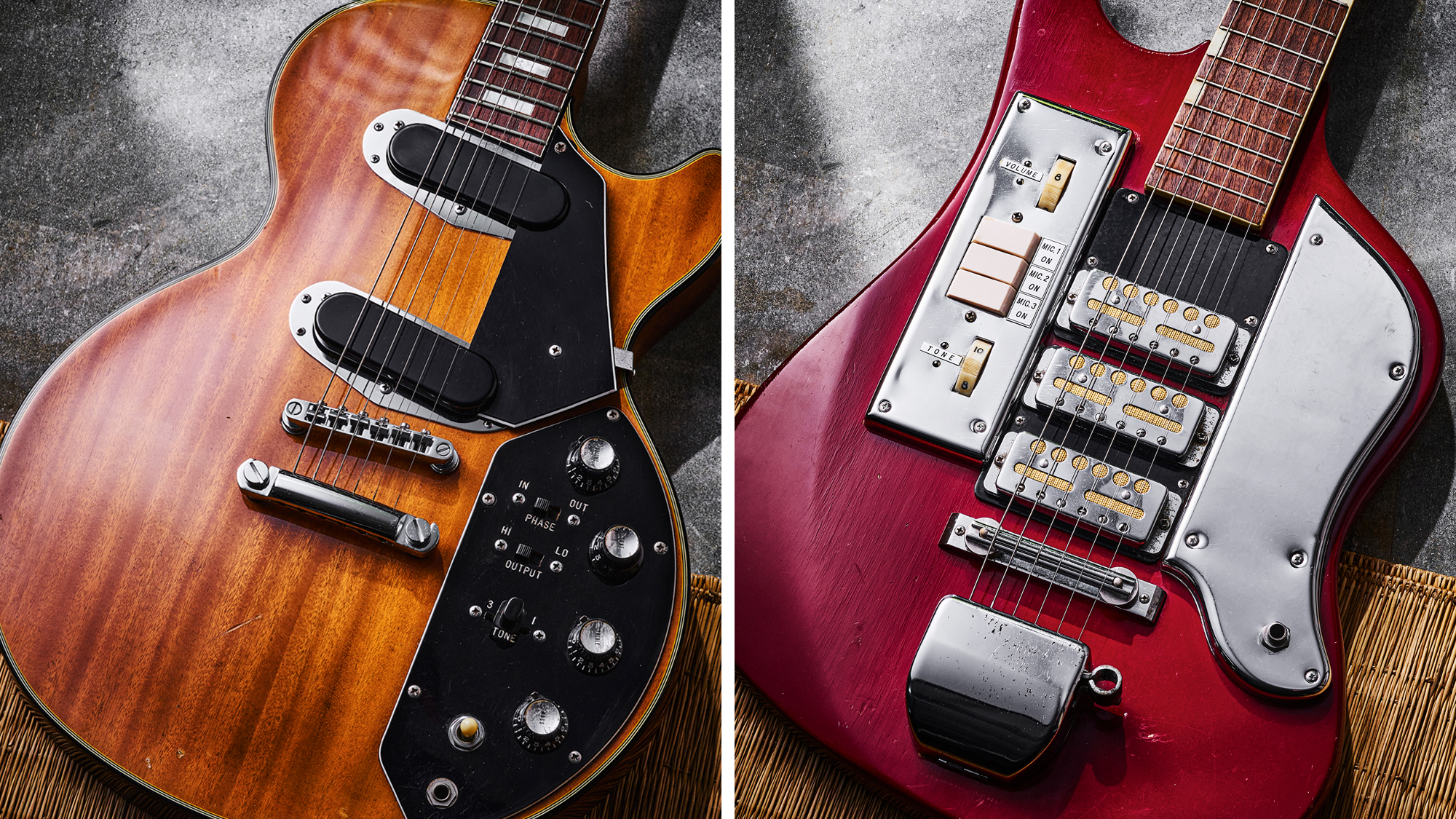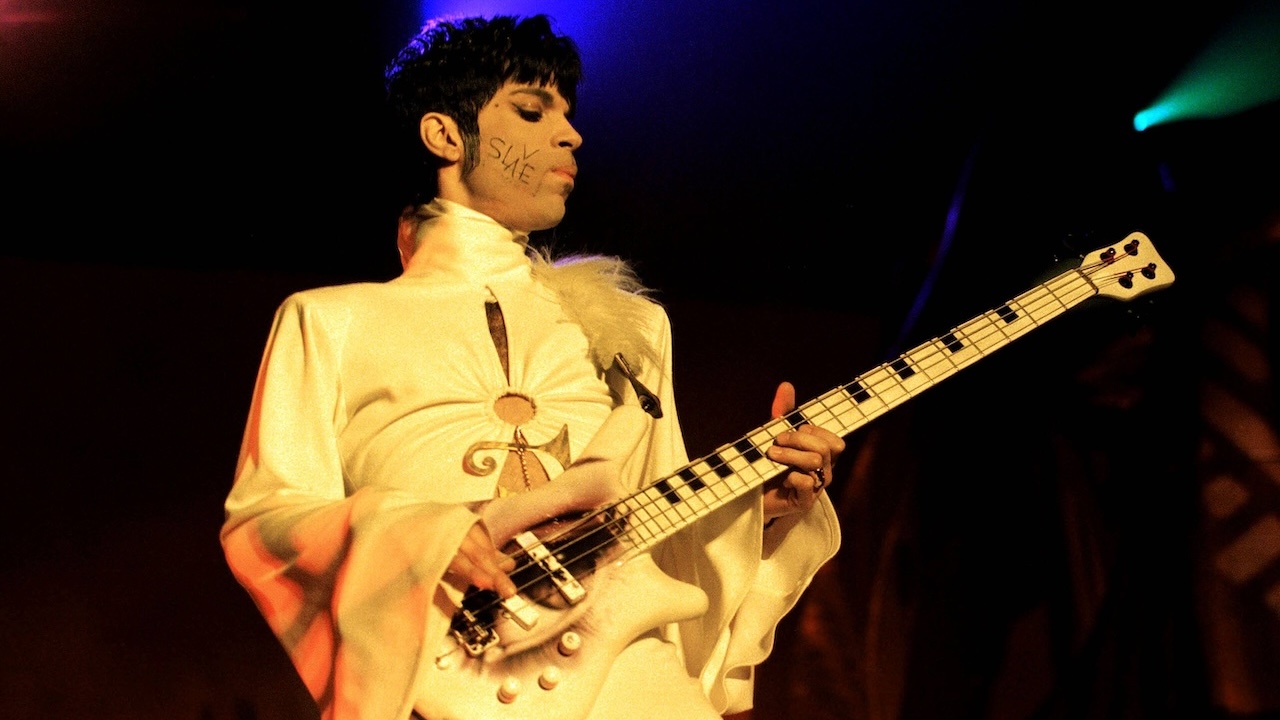Remembering the guitarists we lost in 2024
This year, we've sadly had to say goodbye to many guitar greats from across the world of music. Here, we recognize some of those guitarists, and their contributions to the instrument

From the get-go, it's been a remarkable year for guitar.
There have been light-year leaps in tech, unexpected collaborations, genre boundaries have been shattered, new levels of virtuosity achieved... Most satisfyingly, this year also saw the instrument send concerned parents into an uproar like it was 1958.
However, we've also had to sadly bid farewell to dozens of guitar greats from across the musical spectrum, all of whom made an impact on the guitar landscape we see today.
Here, we recognize those guitarists, and their contributions to the instrument.
This list is presented in chronological order.
John Diggins
A post shared by Tony Iommi (@tonyiommi)
A photo posted by on
A renowned luthier, John Diggins may not have been a household name, but some of the players for whom he built instruments certainly are.
Noddy Holder, and AC/DC's Angus and Malcolm Young, were three of his customers, but most famous by far was Diggins' relationship with Black Sabbath rifflord Tony Iommi.
Get The Pick Newsletter
All the latest guitar news, interviews, lessons, reviews, deals and more, direct to your inbox!
Diggins began his career working for John Birch, the Birmingham, UK-based luthier who partnered with Iommi early in the Black Sabbath legend's career, building customized SGs that Gibson was unwilling to make for him. In 1977, he would strike out on his own, founding Jaydee Custom Guitars.
Diggins' partnership with Iommi continued until the end of his life, with the luthier creating a new build for the recording of Black Sabbath's final album, 13, in the early 2010s.
“I’ve still got my old Jaydee 'Old Boy' SG, which I really like,” Iommi told Guitar World in a 2013 interview. “J.D. [Diggins] originally came along to work for me on the road, and he made this first guitar at home on his kitchen table. I kept it for a while and never used it. But then one day I started to use it and I liked it. So now he’s made me about four or five to go on the road with.”
“For [13] he [Diggins] made me a new Jaydee – a white one with an aged look. I used that, and I used my [Old Boy] Jaydee.”
Del Palmer
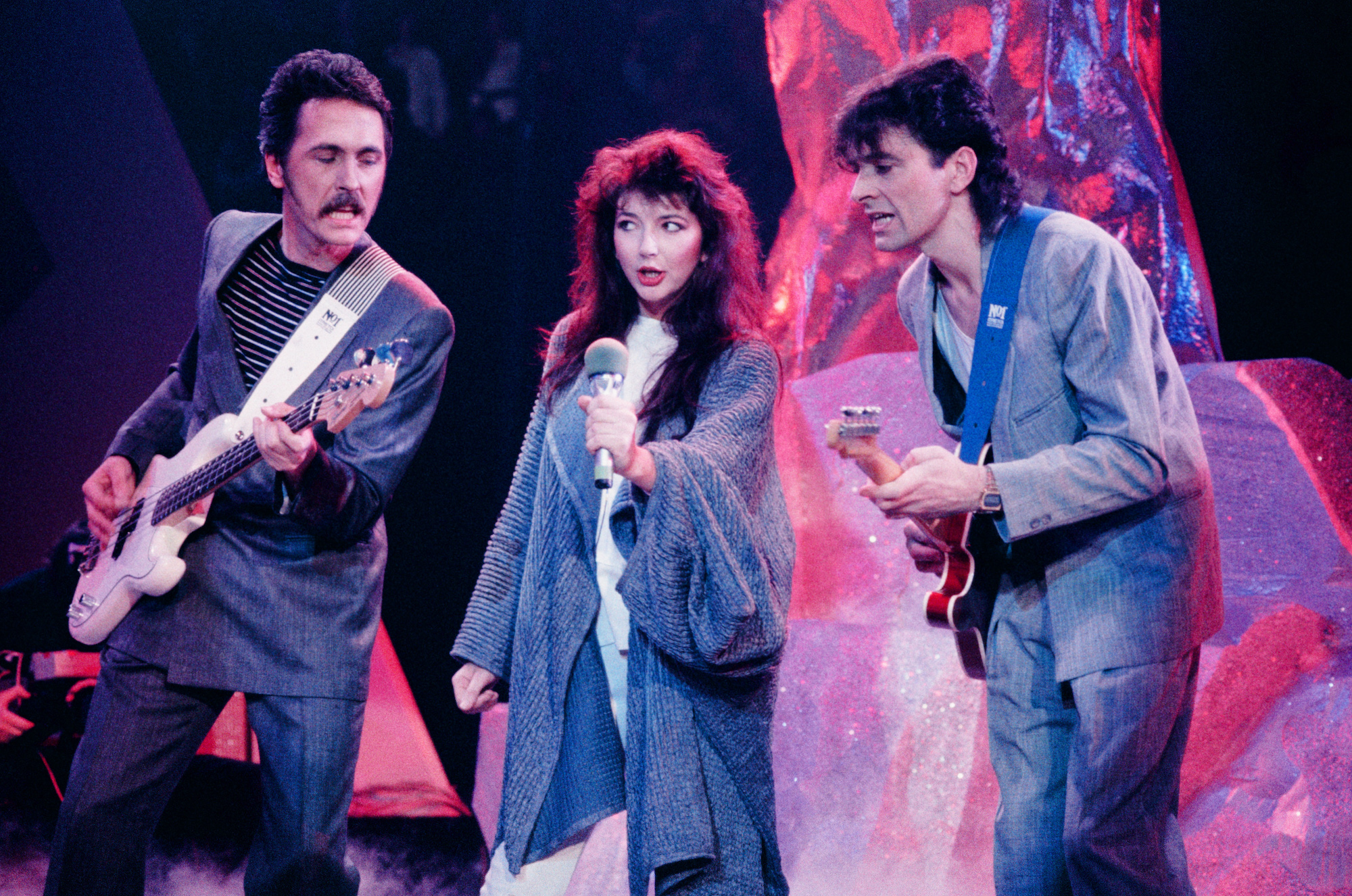
An accomplished bassist and engineer, Del Palmer was perhaps Kate Bush's closest musical collaborator.
Palmer played bass in the famously reclusive singer/songwriter's original live band in the late '70s, and on almost all of her studio albums. He also contributed drum programming and arrangements to Bush's influential output, notably on her classic 1985 album, Hounds of Love.
In a 2011 interview with MOJO, Bush said of Palmer (who was also her romantic partner for a time), “It's wonderful, because I'm working with someone I know so well and I'm very relaxed when I'm in those very early stages of the creative process.
“I suppose I'm a little bit self-conscious, or maybe I am a bit shy. But I feel very relaxed with Del,” she explained. “In some ways, in the nicest possible way, it's almost like he's not there.”
Tony Clarkin
For 50 years, Tony Clarkin served as both the guitarist and chief songwriter of Magnum, doing much to shape the band's intellectual hard rock sound.
Somewhat buried in the grunge tidal wave after a run of success in the mid- to late-'80s, Magnum split in the mid-'90s, but Clarkin pulled the group back together in the early 2000s, remaining the band's devoted shepherd and sonic and lyrical architect until his death.
“Since we embarked on Kingdom Of Madness [Magnum's 1978 debut album], not a single month had gone by in which I didn’t work for Magnum, composed for the group, or at least thought of them permanently,” he said in a 2002 interview.
“For almost 20 years, all my thoughts had revolved around the band.”
Paul Brett
A guitar renaissance man of sorts, Paul Brett wore many hats – blues historian, journalist, and, first and foremost, 12-string guitar master.
Brett's near-unrivaled knowledge of that particular instrument, and vintage guitars in general, led to a partnership with the JHS-owned brand, Vintage, over the course of which a whopping 20+ Brett signature guitars were created.
Brett also played with The Crazy World of Arthur Brown and Roy Harper, and directed the Llyn Acoustic Guitar Festival in his native Wales.
“Everything Paul did in his storied life brought pleasure, positivity, and enlightenment to all who came in to contact with him,” JHS wrote in tribute to Brett. “He approached life with gusto, intensity, a wicked sense of humor, and a propensity for ‘telling it like it is.’”
Wayne Kramer
One can convincingly argue that punk-rock as we know it wouldn't exist without Wayne Kramer and his fellow MC5 guitarist, Fred “Sonic” Smith.
Replete with overdriven riffs, feedback, and radical politics, the MC5's 1969 debut album, Kick Out the Jams, was years ahead of its time, and hugely influential to the first generation of punk bands, and, later, alt-rockers like Tom Morello and Sonic Youth's Thurston Moore and Lee Ranaldo.
Kramer and Smith's tough-edged guitar sound stood in direct contrast to the flower-power psychedelia that had taken over the rock world at the time, with the former viewing the guitar as a musical (and political) weapon.
Kramer kept that attitude and sound alive after resurrecting the band in the 21st century, after Smith passed away.
In an interview with Fender, Kramer drew parallels between his approach and that of Pete Townshend.
“I thought Pete Townshend was the sharpest tool in the shed,” Kramer said. “He was doing the same stuff I was trying to do, the feedback, pushing guitar tone into a new dimension.”
Aston ‘Family Man’ Barrett
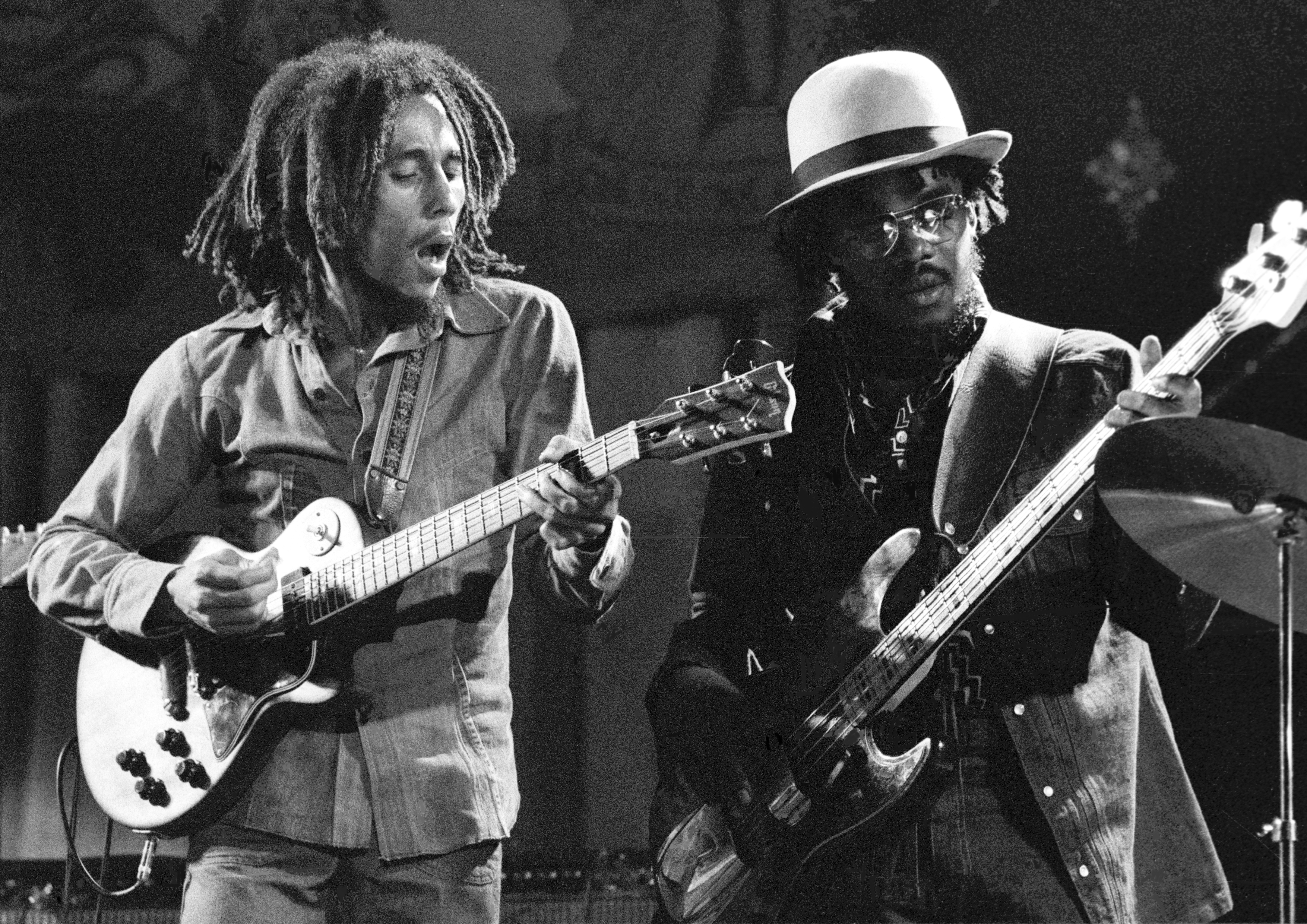
As the bassist for Bob Marley & the Wailers, Aston ‘Family Man’ Barrett played arguably the most significant role in shaping the dub and reggae bass sound, which itself spread far beyond the confines of those genres.
In his capacity as Marley's low-end anchor, he played an oft-overlooked role as the one of the chief architects of the reggae icon's sound, even as Marley began to intersect with the world of rock as his popularity grew.
“Perhaps no music evokes the notion of bass and bass tone like reggae and dub, and no two words are more synonymous with those plucking practices than ‘Family Man,’” wrote Bass Player in 2020, citing him as one of the most influential figures in the history of the instrument.
“The Bob Marley bassist invented the concept of a melodic line locked into the groove, the ‘one-drop’ downbeat, and various other stylistic approaches to Island bottom.”
Toby Keith
It's difficult to imagine the landscape of modern country music without Toby Keith, whose everyman persona and knack for a hook made him a many-times-platinum, guitar-toting icon of the genre.
Never shy about expressing his beliefs, Keith was sometimes a polarizing figure, even within country music. The overtly patriotic and military themes in many of his hits occasionally touched off debates both political and musical – his post-9/11 smash, Courtesy of the Red, White and Blue (The Angry American), was particularly a lightning rod.
Keith's influence, however, can't be denied, and he remains a country touchstone for those on all sides of the genre.
Mojo Nixon
A true character, Mojo Nixon aimed a cynical but humorous eye at pop culture, achieving notoriety with radio ban-baiting tunes like Don Henley Must Die (which Henley himself took in good humor) and, famously, Debbie Gibson Is Pregnant with My Two-Headed Love Child.
Underneath the sarcasm, though, were genuine rockabilly riffs that revealed Nixon's affection for the genre. Such was Nixon's love of the guitar that he even appeared in a commercial advertising San Diego's Guitar Trader music store.
Nixon's blend of that hod-rodded guitar work with an irrepressibly anti-establishment attitude influenced countless punk, alt-rock, and oddball country acts that came after him.
Bobby Tench
Though best-known as a vocalist – a role he served most famously for the Jeff Beck Group – Bobby Tench was also a versatile all-around musician with impressive six-string skills.
Aside from his high-profile vocalist gig with Beck, Tench played guitar for no less than Freddie King, with other tenures playing behind Van Morrison, Eric Burdon, and Humble Pie's Steve Marriott.
In an interesting bit of trivia, he was even the owner of a prized '59 'Burst Gibson Les Paul that was purchased by Mark Knopfler, and subsequently sold at auction for $876,000.
“Rest in peace Bobby,” wrote Joe Bonamassa on Twitter upon hearing of Tench's death. “One of the greatest singers to ever step behind the mic.”
W.C. Clark
Known as “the Godfather of Austin Blues,” W.C. Clark was for well over half a century a pillar of that city's blues scene, and a mentor to the big names that came out of it.
He taught guitar to Will and Charlie Sexton, and had decades of road experience already under his belt when, in the mid-'70s, he befriended a young Austin guitar-slinger named Stevie Ray Vaughan.
The two played together consistently throughout the late '70s (and continued to on occasion up until Vaughan's death in 1990) with Clark even co-writing the song Cold Shot, which would become synonymous with Vaughan.
Like many pioneering blues guitar greats, Clark never earned the mainstream success of his disciples, but by the accounts of those he mentored, he was generous with his wisdom, and harbored no bitterness towards contemporaries who sold more records.
“Folks are always writing about how I taught Stevie and Jimmie [Vaughan], but I actually learned as much from them as they learned from me,” he once said of the Vaughan brothers (via Michael Corcoran’s Overserved).
“The No. 1 thing those young cats taught me was endurance. As long as the people are coming out to see you, you play as long and as hard as you can every night.”
T.M. Stevens
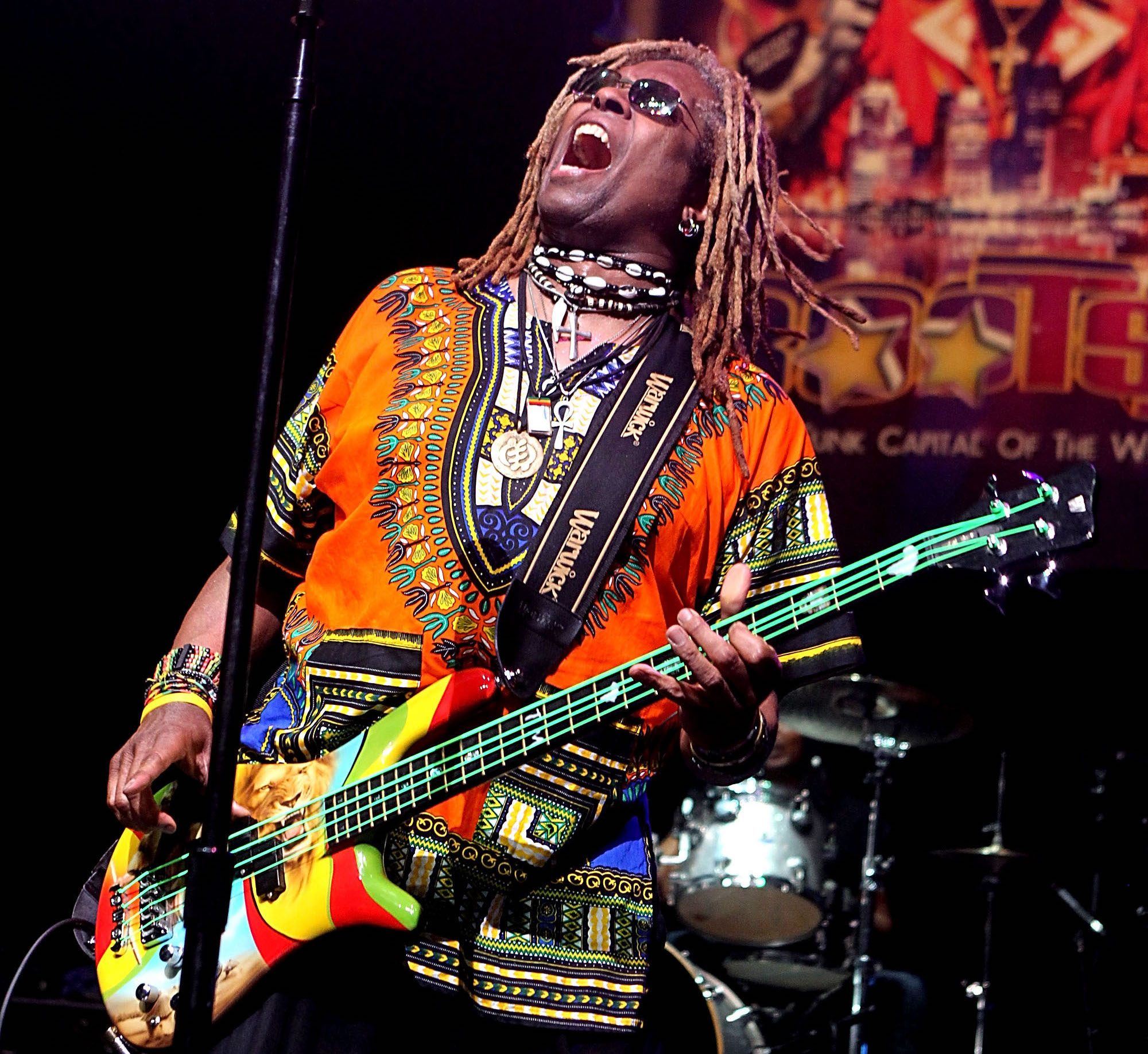
A session veteran whose incredible discography underlines his versatility and skill, T.M. Stevens was, in the words of his fellow bass legend Bootsy Collins, “an important piece of the low end theory.”
Inspired to pick up the bass by Collins' work with James Brown, Stevens would later play with Brown himself, lending bass to Soul Brother No. 1's biggest latter-day hit, Living in America.
Stevens' other credits include work with Cyndi Lauper, Joe Cocker, Tina Turner, and the Pretenders. In the early '90s, meanwhile, he teamed up with Steve Vai, joining the short-lived but heavy-hitting band the guitarist put together for his Sex & Religion album.
Stevens would also, in 2011, hit the road with his hero, an experience Collins reflected on fondly in his tribute to Stevens.
“Join me in recognizing one of the [great] ones!” Collins wrote on Twitter. “We toured together in 2011. U will be missed my funk brother.”
Karl Wallinger
A multi-instrumentalist and singer best known as the leader of the alt-rock band World Party, Karl Wallinger was an under-appreciated figure in '90s British alt-rock.
Having started his career in the early '80s on the West End, as musical director of the British production of The Rocky Horror Show, Wallinger became a key member of the folk-rock band the Waterboys. It was with World Party, though, that he made his biggest mark.
With Wallinger fully at the helm, World Party landed a #1 US alt-rock radio hit, Way Down Now, in 1990, and almost hit the top of the UK charts with their 1993 album, Bang!.
Paying tribute to Wallinger on social media, the Waterboys' Mike Scott wrote, “Travel on well my old friend. You are one of the finest musicians I've ever known.”
Mike Lewis
A post shared by fendercustomshop (@fendercustomshop)
A photo posted by on
The Vice President of Product Development at the Fender Custom Shop, Mike Lewis was a true master craftsman and walking encyclopedia of guitar knowledge.
Lewis was shown the ropes by no less than Chuck Berry when he toured with the famously curmudgeonly guitar icon – opening for the Rolling Stones in the process – in 1969.
After a decades-long session career, Lewis landed at Fender in 1991, where he would work for the rest of his life.
Mike Lewis didn’t merely oversee product lines; he possessed the rare ability to reimagine them, stripping them down to their essence and rebuilding them anew
Fender’s Justin Norvell
Looking at the last 30 years of the storied company's history, one can hardly find something that Lewis didn't have a hand in.
He took the helm of Fender's amp line, expanding its offerings and increasing its sales, helped create the first production line Strat with a humbucker (the Lone Star), and spearheaded the renaissance of Gretsch.
Finally, he stewarded the Fender Custom Shop, overseeing in granular detail the shop's builds and envisioning new offerings. All told, under Lewis, the Custom Shop had the most successful decade of its existence so far.
“Mike Lewis didn’t merely oversee product lines; he possessed the rare ability to reimagine them, stripping them down to their essence and rebuilding them anew,” wrote Fender’s Executive Vice President of Product, Justin Norvell, of Lewis.
“His strong vision, cultivated over decades as a player, shaped his approach… Mike's wealth of experience, perspective, and wisdom became the foundation he brought to Fender.”
Eric Carmen
A first-rate songwriter, Eric Carmen spent decades bringing hits to the stage, as the leader of the Raspberries, and to the screen.
On the Raspberries' biggest hit, Go All the Way, Carmen showcased his skill by artfully blending accessible, radio-friendly hooks with lyrics deemed subversive and suggestive enough that the song was famously banned by the BBC.
Following that band's split in 1975, Carmen found even greater success on his own with the classically-influenced All by Myself and, a decade later, Hungry Eyes, which featured on the hit film Dirty Dancing.
Carmen influenced countless songwriters over the decades, and later came full circle with the Beatles as a member of Ringo Starr’s All-Starr Band.
Steve Harley
A skilled frontman, songwriter, and guitarist, Steve Harley was the leader of the UK glam-rock band Cockney Rebel.
Like many eventual glam-rock stars, Harley actually got his start in the London folk scene, but by 1972, he began writing material more in the rock vein, and assembled what would become Cockney Rebel.
Though never as successful as glam A-listers like David Bowie and T. Rex, Harley and Cockney Rebel topped the UK charts with the classic Make Me Smile (Come Up and See Me).
Outside of Cockney Rebel, Harley recorded six solo albums over the decades, and showcased his talents with contributions to songs by the The Alan Parsons Project and Rick Wakeman.
“We are so very sad to hear of the passing of Steve Harley,” wrote Orchestral Manoeuvres in the Dark on Twitter. “His music was determinedly and insistently unconventional – deeply characterful lyrics and vocal inflections.”
Chris Cross
Born Chris Allen, Chris Cross was an integral member of quintessential British new wavers Ultravox.
Though synth-heavy, Ultravox were also propelled by Cross's bass work, which drew from an eclectic array of influences. Cross brought all those to the fore on the band's biggest hit, Vienna, which he co-wrote.
“You were the glue that held the band together,” wrote Ultravox frontman Midge Ure in tribute. “You were the logic in the madness and the madness in our lives. It was great to know and grow with you. You are loved and missed old friend.”
Dickey Betts
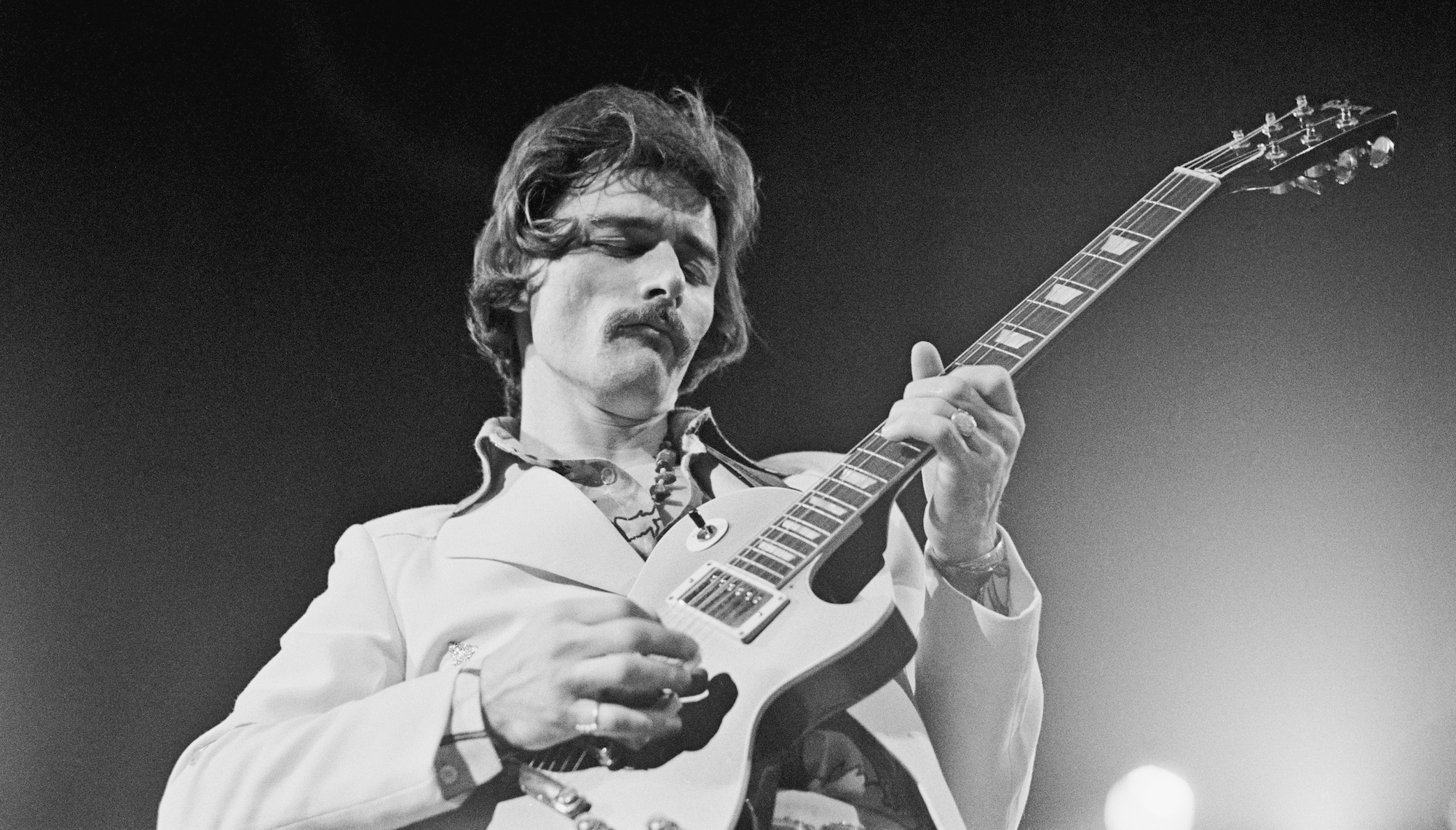
A true giant of rock guitar, Dickey Betts was half of one of the greatest two-guitar tandems in history with Duane Allman, and helped lead the Allman Brothers Band for three decades in the wake of the latter's tragic death.
Guitar World columnist Andy Aledort played with Betts for a decade in his post-Allman band Great Southern, and is better equipped than just about anyone to summarize succinctly who he was, and his impact on guitar.
“As one of the founding members of the Allman Brothers Band, Dickey, via his phenomenal playing and brilliant songwriting, laid the foundation for what was at the time a new style of music to be known as Southern rock,” Aledort wrote earlier this year.
“He and his co-guitarist, Duane Allman, weaved intricate harmonized guitar parts unlike any ever heard before; prime examples of these beautifully intricate harmonized lines are at the heart of songs such as Blue Sky, Revival, In Memory of Elizabeth Reed, and many others.
“Betts’ impact on generations of guitarists, as well as all musicians and the broad spectrum of American music, is immeasurable.”
Betts and the Allman Brothers Band acrimoniously parted ways in 2000, but it's inarguable that the band would have never reached the monumental heights they achieved without him.
Not only was Betts an impeccable guitarist with a delicate touch and incredible ear for melody, he was a top-tier songwriter who was chiefly responsible for most of the Allman's biggest hits – Ramblin' Man, Jessica, and Blue Sky among them.
Through those hits, and his evocative dual-guitar partnerships, Betts helped pave the way for Southern rock, and changed the framework of rock as a whole.
Robin George
Robin George made his mark both on his own (with a solo hit in Heartline) and through collaborations with some of the biggest names in rock.
His resumé included work with Robert Plant and Glenn Hughes, alongside an impressive solo career that saw him release half-a-dozen solo LPs.
Perhaps the biggest testament to his guitar skills was his appearance on the cover of an issue of Kerrang! in 1983. Appearing on the front of the magazine dramatically holding a B.C. Rich guitar once owned by Slade, George was described as “The Axe of Tomorrow.”
Duane Eddy
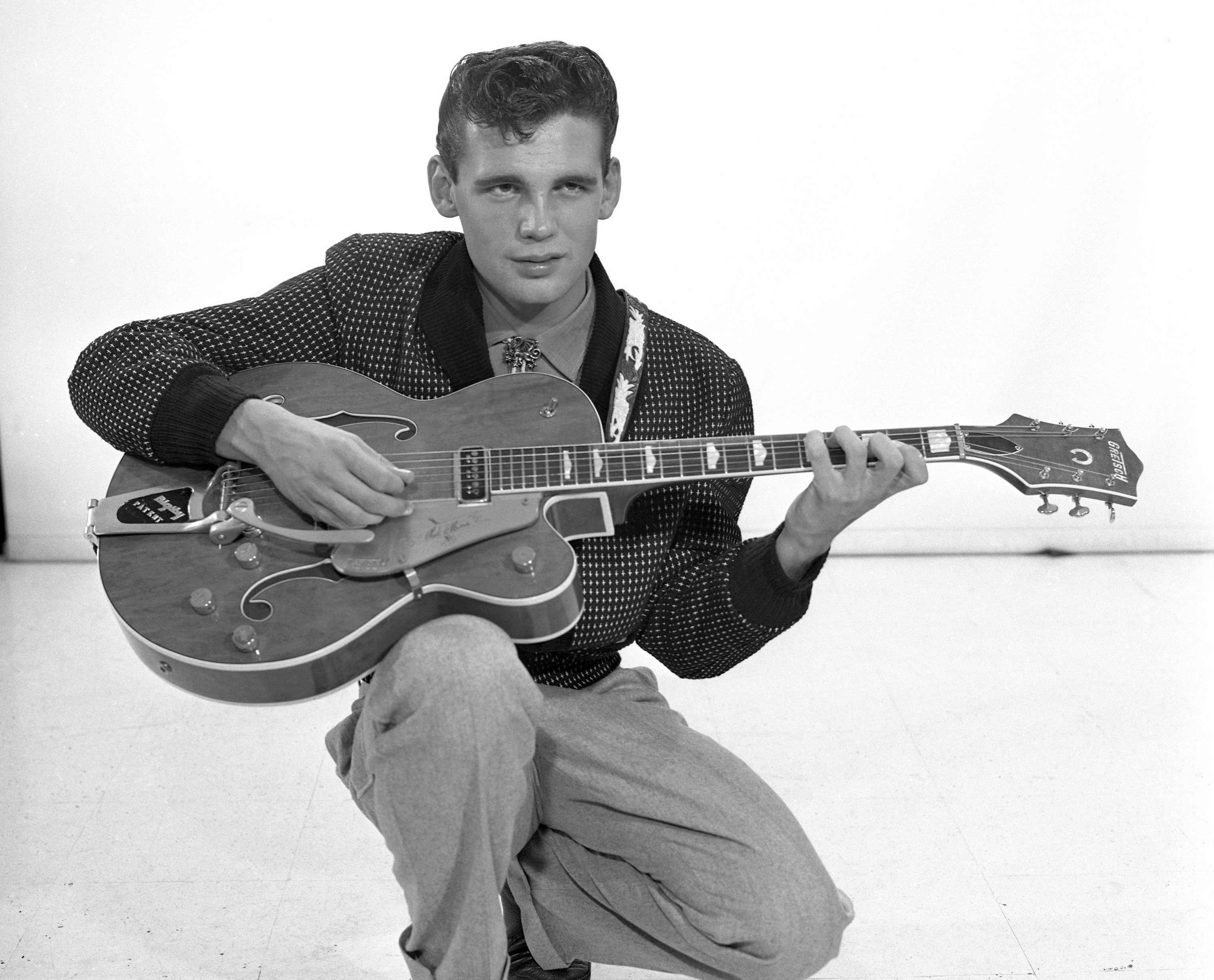
Hugely influential to George Harrison, Bruce Springsteen, Ritchie Blackmore, John Fogerty, and innumerable other guitarists, Duane Eddy was a true pioneer of the guitar instrumental.
Armed with his trademark Gretsch Chet Atkins 6120, and with the help of a 2,000-gallon water tank, Eddy released the game-changing instrumental smash, Rebel Rouser, in 1958.
With its twangy sound – clad in reverb, with enormous low-end from the bottom strings – and its hell-raising name, Rebel Rouser perfectly captured the nascent rock genre's rebellious attitude, and showed that the electric guitar was more than capable of speaking for itself, melodically.
Between 1958 and 1963, Eddy had an astounding run of commercial success, with 16 top 40 hits. By the mid-1960s, though, the guitarist's commercial success had waned in the face of the post-Beatles explosion, which itself was fueled by many guitarists Eddy had influenced.
Still, Eddy remained a stylistic touchstone for multiple generations of guitar players. He remained a beloved live attraction, and managed to recruit, for instance, a staggering guest list for his 1987 self-titled album that included John Fogerty, Steve Cropper, Paul McCartney, George Harrison, and Ry Cooder.
Eddy was proud of the melodic simplicity of his instrumentals, saying that that simplicity made the guitar more accessible to those who might have been intimidated by the instrument.
“I kept those melodies simple,” he once told Classic Rock magazine. “A guy can pick up a guitar and play the first notes of Rebel Rouser or [Eddy's] Peter Gunn [theme]. Then you’re encouraged to go, ‘I might be able to do this.’”
Steve Albini
As the frontman and guitarist for Big Black, and later Shellac, Steve Albini developed an abrasive lyrical and guitar style that proved tremendously influential to generations of alt-rock and metal bands.
Backed by a Roland TR-606 drum machine, and influenced by the metallic, industrial sounds of early Public Image Ltd. records, Big Black stood out in the nascent '80s alt-rock world with brutal songs that touched on the darkest sides of humanity.
Leading it all was the relentless, buzzing, chainsaw-like twin-guitar attack of Albini and guitarist Santiago Durango, who perfectly played musical foil to the former's dark lyrics.
Later, Albini also helped shape the sound of alt-rock as a prolific producer – most notably manning the boards for Nirvana's final album, In Utero, and the Pixies' iconic Surfer Rosa album – while still (aggressively) pushing the boundaries of guitar with Shellac.
Charlie Colin
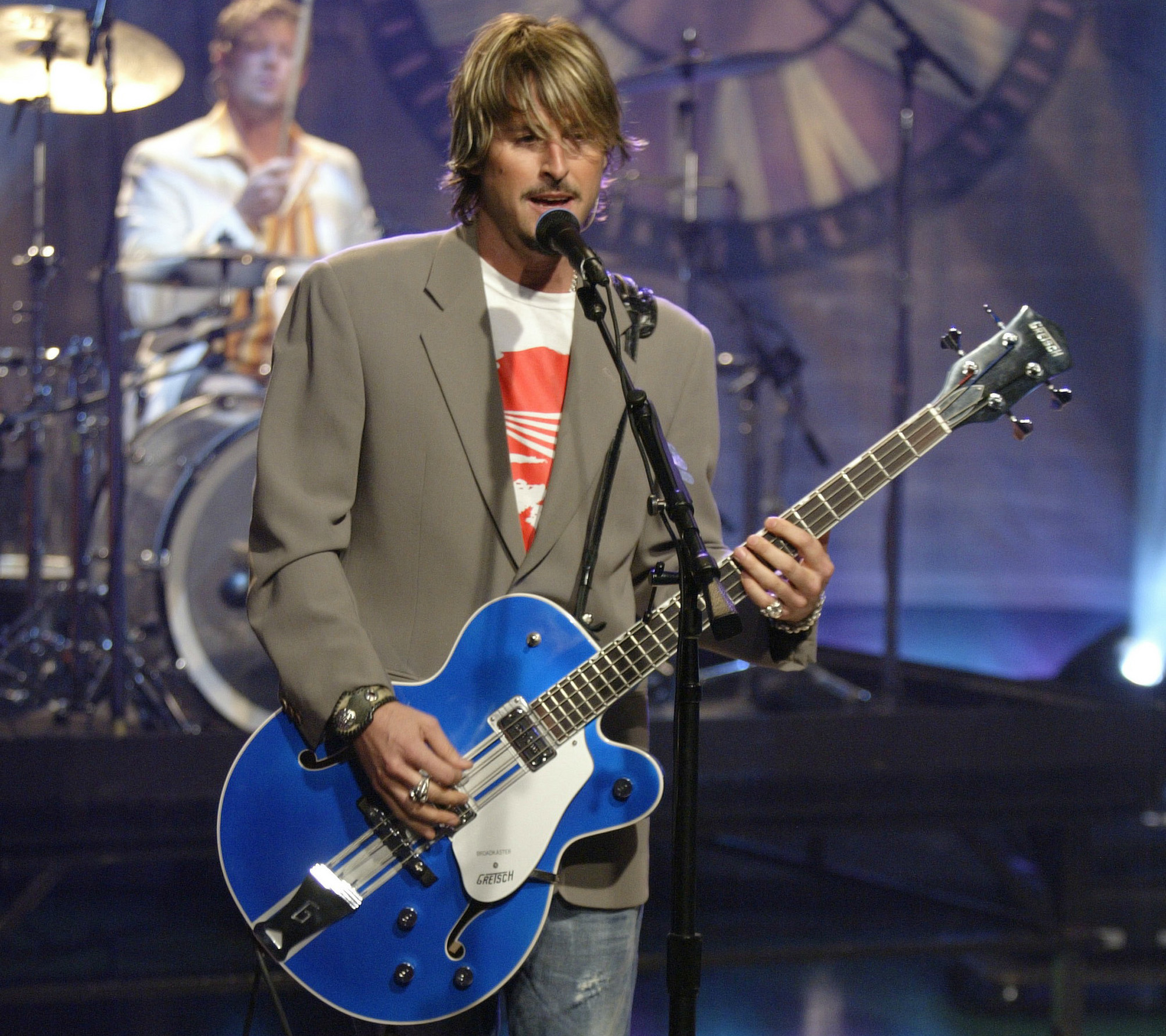
The original bassist of the many-times-platinum band Train, Charlie Colin helped establish the group's smooth, radio-friendly rock sound.
Colin co-wrote and played on the first of the band's smash hits, the still-ubiquitous Drops of Jupiter (Tell Me), before his departure from the band in 2003.
A skilled guitarist as well, Colin played for a number of other groups and on sessions in the decades after his tenure with Train.
“His unique bass playing and beautiful guitar work helped get folks to notice us in San Francisco and beyond,” wrote Train frontman Pat Monahan on Instagram in tribute to Colin. “I’ll always have a warm place for him in my heart.”
Tom Fowler
Frank Zappa's bassist from 1973 through 1978, Tom Fowler was – like just about everyone who came and went through Zappa's bands over the decades – an incredibly capable musician.
He played bass on two of Zappa's most commercially successful albums – 1973's Over-Nite Sensation and 1974's Apostrophe (') – and with Zappa on some of the most acclaimed tours of his career.
A strong example of Fowler's fretwork can be heard on Echidna's Arf (of You), from the classic live album, Roxy & Elsewhere. This track in particular was highlighted by Fowler's fellow Zappa album, Arthur Barrow, in the latter's tribute to the bassist.
“He was a hero to me,” Barrow wrote on social media. “The first time I heard Echidna's I almost fell over when he played the big 5/16 lick on the bass!
“I had no idea that a clumsy bass could do such a thing! He was an inspiration for me to buy a bass and start practicing. I have known him since about 1976. RIP old friend – missing you very much.”
Jerry Miller
A co-founder of Moby Grape, Jerry Miller was considered one of the best guitar players to emerge from the crowded San Francisco scene in the late '60s.
Though never as commercially successful as many of their contemporaries in that scene, Moby Grape were the quintessential ‘your favorite artist's favorite artist,’ winning fans in the Black Crowes and especially Robert Plant.
Miller, for his part, was regarded as the band's guitar ace, and was famously cited by no less than Eric Clapton as “the best guitar player in the world.”
Having ranked him 68th on its original list of the 100 greatest guitarists of all time, Rolling Stone said of Miller, “His playing was never self-indulgent, and his soloing was propulsive, always aware of where the song was headed.”
John Mayall
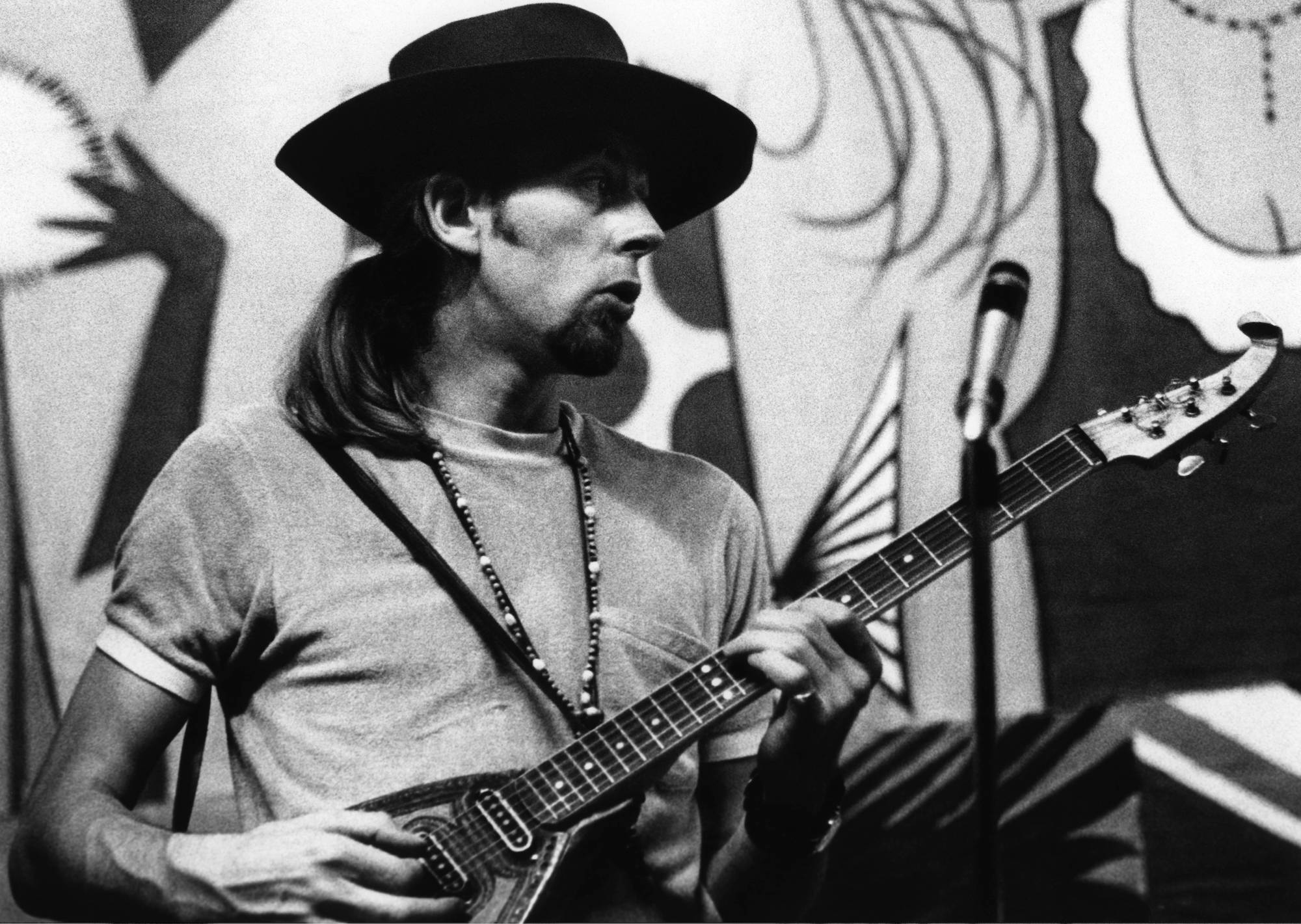
As the leader of John Mayall's Bluesbreakers and on his own, John Mayall spent more than 60 years dedicating himself to the blues with unyielding passion. In doing so, Mayall also developed a knack for picking out young talent for his bands – particularly in the guitar realm.
Peter Green, Mick Taylor, and, most famously by far, Eric Clapton, all cut their teeth with Mayall, paying their blues dues before expanding their styles and finding fame and fortune elsewhere.
Though not known as a guitar virtuoso himself, Mayall's songs and guidance allowed the players under his wing to flourish, and transform people's ideas of what the guitar was capable of.
Mayall's landmark recording was Blues Breakers: John Mayall and Eric Clapton, which featured the future guitar legend plugging his Les Paul straight into a cranked Marshall JTM45 and letting loose. One can trace the sound and tone of just about every recording in the “blues-rock” vein in the almost 60 years since its release to that album.
A book can easily be written about all the musicians that played with Mayall, and the impact they subsequently had on blues and rock music, but in his tribute to Mayall, Clapton succinctly summarized what made him such a key mentor.
“When I was a young man and about to quit music he found me, took me into his home and asked me to join his band,” Clapton said of Mayall.
“He taught me that it was okay to play the music you wanted to play. He was my mentor and a surrogate father, too. He taught me all I really know, and gave me the courage and enthusiasm to express myself without fear or without limit. I’ll miss him.”
Carl Weathersby
A protege and bandmate of blues guitar legend Albert King, Carl Weathersby was a beloved figure in Chicago's blues scene.
Aside from his tenure with King in the late '70s-early '80s, Weathersby also played with Billy Branch’s Sons of Blues band for 15 years, and put out a number of well-received records of his own.
“Over the years I watched as Carl’s guitar and singing skills continued to develop and mature, ultimately making him one of the most skilled and dynamic bluesmen of our times,” Branch wrote of Weathersby, who was inducted into the Chicago Blues Hall of Fame in 2017.
“His vocals were heartfelt and passionate. His guitar skills were unmatched. He had come into his own.”
Russell Malone
A well-respected jazz guitar maestro, Russell Malone toured and recorded with some of the biggest names in the genre over the course of his nearly 40-year career.
He first came to prominence backing Harry Connick Jr., before moving to Diana Krall's band. His session credits, meanwhile, included work on tunes by Kenny Barron, Branford Marsalis, Wynton Marsalis, Jack McDuff, and many more.
In 2002, Malone teamed up with bass great Ron Carter, with whom he would perform regularly until his death.
“With Russell, there were no misplaced notes,” vocalist Dianne Reeves, another of the guitarist's collaborators, said in tribute to Malone. “Everything was where it’s supposed to be, and he understood letting an idea just have the space to resonate with people.”
Pete Wade
A true legend of Nashville, Pete Wade lent his song-serving guitar skills to innumerable country hits.
To name just a few examples, Wade can be heard on Loretta Lynn’s Fist City, Ray Price’s Crazy Arms, Lynn Anderson’s Rose Garden, and George Jones’ He Stopped Loving Her Today.
Wade also played on cuts by Johnny Cash and Reba McEntire, and even a number of notable artists outside the country realm – among them Joan Baez, Perry Como, Little Richard, and Ween.
“Pete Wade treated all of them the same way,” music journalist Peter Cooper said of the artists Wade accompanied. “He listened, he comprehended, he added what would help, and he left out anything that would distract or water down.”
James Tyler
A post shared by James Tyler Guitars (@jamestylerguitars)
A photo posted by on
A renowned luthier and guitar designer, James Tyler played a quiet but key role in the industry's Superstrat revolution in the '80s.
Having first come to notice as a repairman at the legendary Norman’s Rare Guitars shop in Los Angeles in 1978, Tyler opened up a workshop of his own in 1980.
Tyler began attracting the cream of the crop of the city's competitive session scene – Dann Huff and Michael Landau among them – as clients, with word of mouth eventually attracting the business of bigger names like Steve Lukather and Van Halen’s Michael Anthony.
Tyler later worked with Line 6 on the company's JTVariax modeling guitar, and also pushed boundaries in his own designs, with a famously polarizing trademark headstock design in particular raising eyebrows.
“In his 50-plus years as a guitar maker, James was a titan in the industry who helped shape the LA Studio Sound of the 1980s and was one of the first to strike out with his own (controversial) trademark headstock. His portfolio of clients was driven almost exclusively by word of mouth and spans across all musical genres,” wrote Tyler's daughters, Sarah and Jessica, of their father in a statement.
Herbie Flowers
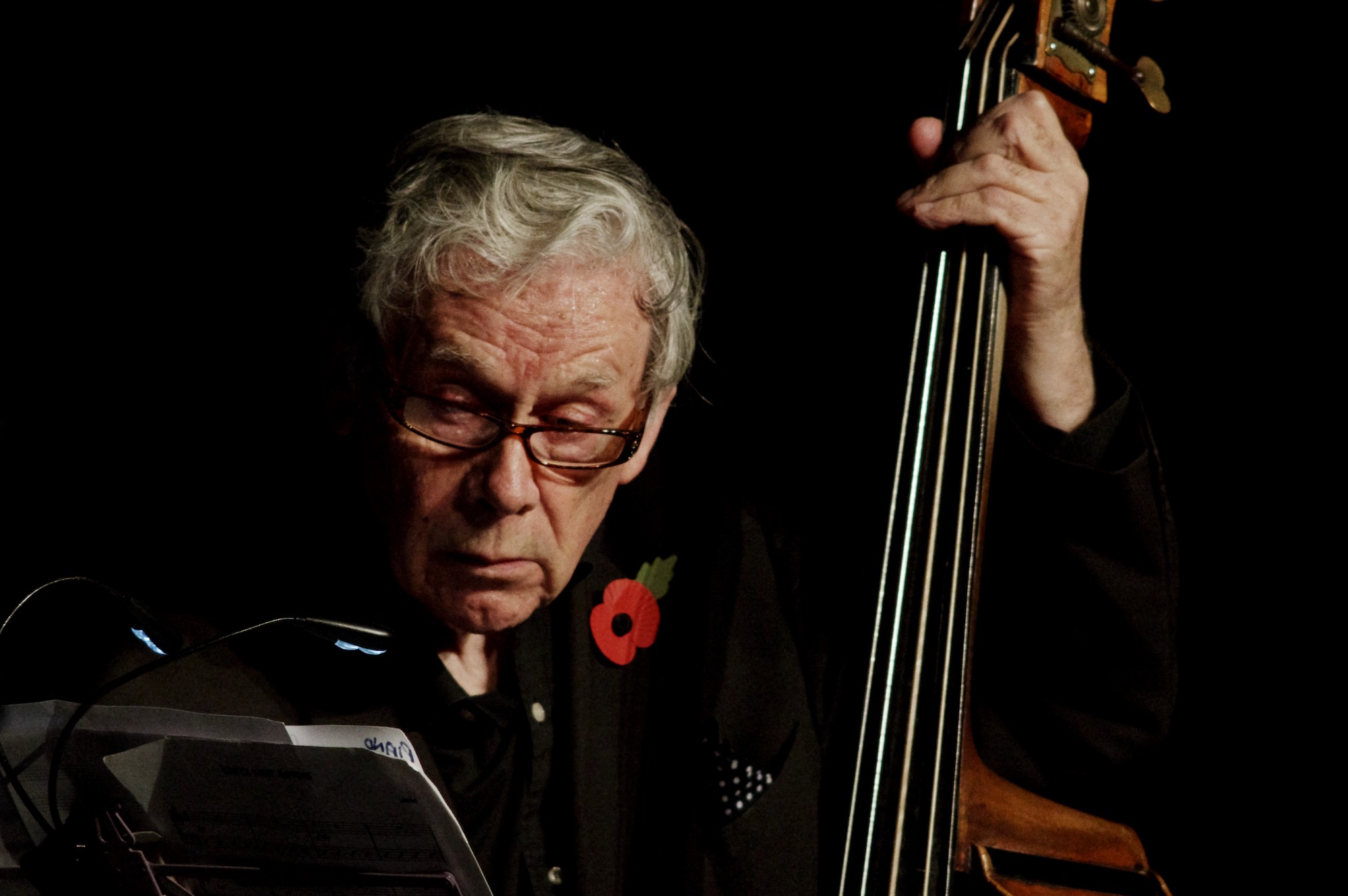
A first-call session bassist with a mind-blowing list of credits to his name, Herbie Flowers was responsible for one of the most famous bass lines in rock history – the jazzy hook on Lou Reed's smash hit, Walk on the Wild Side.
A versatile talent who could work in virtually any genre, Flowers is said to have participated in thousands of sessions, working with a who's who of rock royalty along the way – Paul McCartney, George Harrison, Elton John, and Cat Stevens among them.
Flowers had an especially long and fruitful relationship with David Bowie, which began with his work on the singer's first hit, Space Oddity.
“Aside from his incredible musicianship over many decades, he was a beautiful soul and a very funny man,” the David Bowie Estate wrote in tribute to Flowers. “He will be sorely missed.”
Tommy Cash
The younger brother of country icon Johnny Cash, Tommy Cash helped carry on the legacy of his brother's music, while also making a mark as a respected artist in his own right.
In the mid-'60s, he played with Hank Williams Jr., and later that decade embarked on a career of his own.
Like his older brother, Tommy Cash wasn't afraid of swimming against the country tide. His most successful single, 1969's Six White Horses, was a unique tribute to John F. Kennedy, Robert Kennedy, and Martin Luther King Jr., and stood out in the largely conservative Nashville climate of the time.
“Tommy Cash was a loyal supporter of the Johnny Cash Museum and a very beloved member of our extended family as well as a highly respected member of the music industry,” wrote Bill Miller, the founder of Nashville's Johnny Cash Museum.
“This great man will be deeply missed by his friends and many loyal fans around the world. Please keep Tommy’s beloved wife, Marcy, and his family in your prayers.”
Tito Jackson
A member of one of the most successful family acts in show business history, Tito Jackson was often overshadowed by his brothers – Michael, of course, in particular – but was nonetheless incredibly gifted as a musician and performer.
Having started on the instrument at a young age, Tito's guitar acumen grew quickly as he and his brothers became known as the Jackson 5, and began a historic run of chart domination.
In keeping with their tight control of the band's artistry and image, however, the domineering Jackson patriarch, Joseph, and the band's label, Motown, wouldn't allow Tito to play guitar on the band's records.
After the Motown days, though, Tito would branch out, exploring the worlds of R&B and blues in his own guitar-driven records, and in collaborations with his brothers and with other artists.
“Everything began for us when Tito broke that guitar string and The Jackson 5 were born,” the Jackson family wrote in a statement honoring Tito.
“Just a few days ago we were onstage together in Munich, Germany. We could never have dreamt that would be our last time with him. We lived our lives on stage, and Tito was on stage 'till the end, spreading joy and love.”
Freddie Salem
An under-appreciated figure in the annals of Southern rock guitar, Freddie Salem recorded and toured with the band Outlaws at the height of their success in the late '70s and early '80s.
Making his debut in 1978 on the band's double-live album, Bring It Back Alive, Salem immediately made his presence known in the songwriting – a live version of his song, I Hope You Don't Mind, was featured on the album – and guitar departments, with his participation in the LP's 20-minute barn-burner of a closer, Green Grass and High Tides.
After his departure from the band in 1982, Salem played on a number of Barbra Streisand sessions, and even jammed with Joe Bonamassa later in his career.
Salem, the Outlaws wrote on social media in remembrance, “was an electric performer and beloved musician and he will be missed.”
Kris Kristofferson
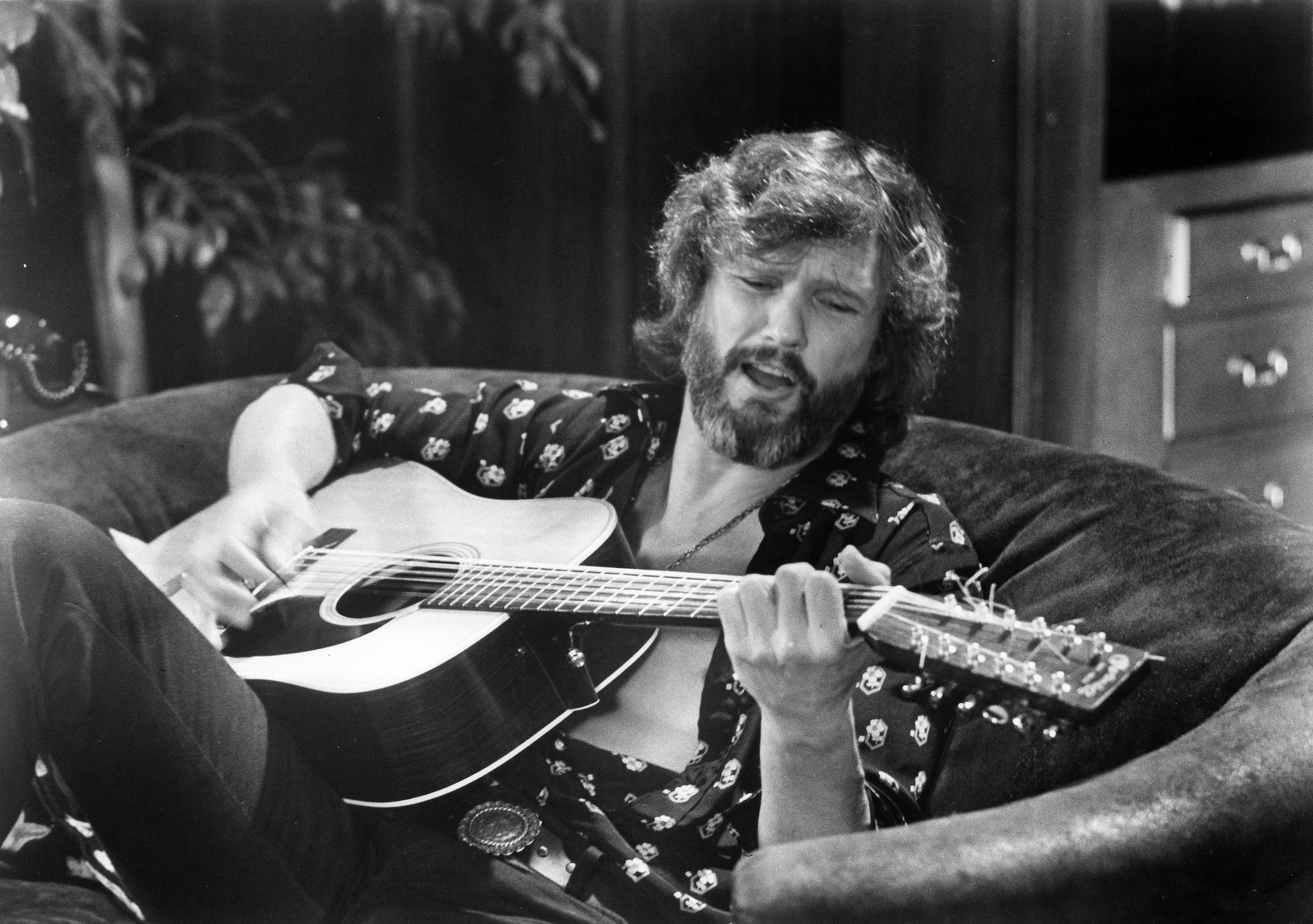
Nothing less than a giant of country music, Kris Kristofferson was one the first, and most prominent, figures to move the genre away from the polished ‘Nashville sound’.
A cultural icon as well, Kristofferson was an acclaimed, A-list actor, starring in films like Pat Garrett and Billy the Kid and the original A Star is Born.
As a guitarist, he was sturdy and song-serving, and as a songwriter, he had few peers.
Johnny Cash, Waylon Jennings, Janis Joplin, and Gladys Knight were just a few of the artists who covered his songs, and those who didn't held him in universally high regard.
Another indication of his stature in country came via his membership in the outlaw country supergroup, Highwaymen, which united him with Cash, Jennings, and Willie Nelson.
Of Kristofferson, Bob Dylan said simply, “You can look at Nashville pre-Kris and post-Kris, because he changed everything.”
Dave Allison
An original member of metal lifers Anvil, Dave Allison was the band's guitarist for most of the '80s, during which they scraped their way to the upper echelons of the hard rock world, before famously fading into obscurity the following decade.
Allison's fiery fretwork can be heard on each of the band's first five albums, helping the band bridge the gap between thrash-y metal and flamboyant, stadium-filling hard rock.
“We'd like to send our deepest condolences to the Allison family and friends – Dave passed away this morning,” Anvil wrote on Twitter upon his passing. “He was proud of his early contributions to Anvil and his name and legacy live on.”
Phil Lesh

A bassist with a wholly unique approach to the instrument, Phil Lesh was one of the main ingredients of the sound of the Grateful Dead, who themselves changed the trajectory of rock music.
Originally a guitarist inspired by an eclectic array of influences, jazz and classical among them, Lesh brought those unconventional (for rock at the time) influences to the bass with the Grateful Dead.
Guitarist and frontman Jerry Garcia was often given the most plaudits for the band's legendary free-form jams, but Lesh had a significant role in them himself, playing vibrantly off of Garcia's expansive guitar work while never losing his place amongst the band's two drummers, or forgetting his role as the band's anchor.
Lesh also made huge contributions to the Dead's work in the songwriting department, co-writing classics like St. Stephen, Dark Star, Truckin’, and Box of Rain, often taking lead vocals on the lattermost tune.
Beyond his musical contributions, Lesh was known for his singular Alembic ‘Mission Control’ four-string, which pioneered the concept of the boutique bass.
“Phil Lesh was irreplaceable,” the surviving members of the Grateful Dead wrote in a statement. “In one note from the Phil Zone, you could hear and feel the world being born.
“His bass flowed like a river would flow. It went where the muse took it. He was an explorer of inner and outer space who just happened to play bass. He was a circumnavigator of formerly unknown musical worlds. And more.”
Vic Flick
An accomplished session guitarist, Vic Flick will forever be remembered for his contribution to the James Bond theme – an instantly recognizable lick that defined the titular character's mysterious, ultra-cool air.
Played on a 1939 English Clifford Essex Paragon Deluxe with a big low-end ring, the Bond lick heralded the arrival of the Swinging Sixties, and with it the Beatles-led tidal wave of game-changing guitar bands to come.
Explaining his suave tone on the track to Guitar Player, Flick said, “The recorded sound was due to the plectrum I used and the guitar’s strings. I placed the DeArmond pickup near the bridge. I put a crushed cigarette packet underneath it to get it nearer the strings. That helped to get that round sound. Most important, sound-wise, was the Vox AC15 amplifier.
“Also important was the way the guitar was recorded. It was picked up by the mics for the orchestra, and it gave the guitar a mysterious, powerful sound. It was a sound we created, to a certain extent, and it had a bite that they loved.”
Slim Dunlap
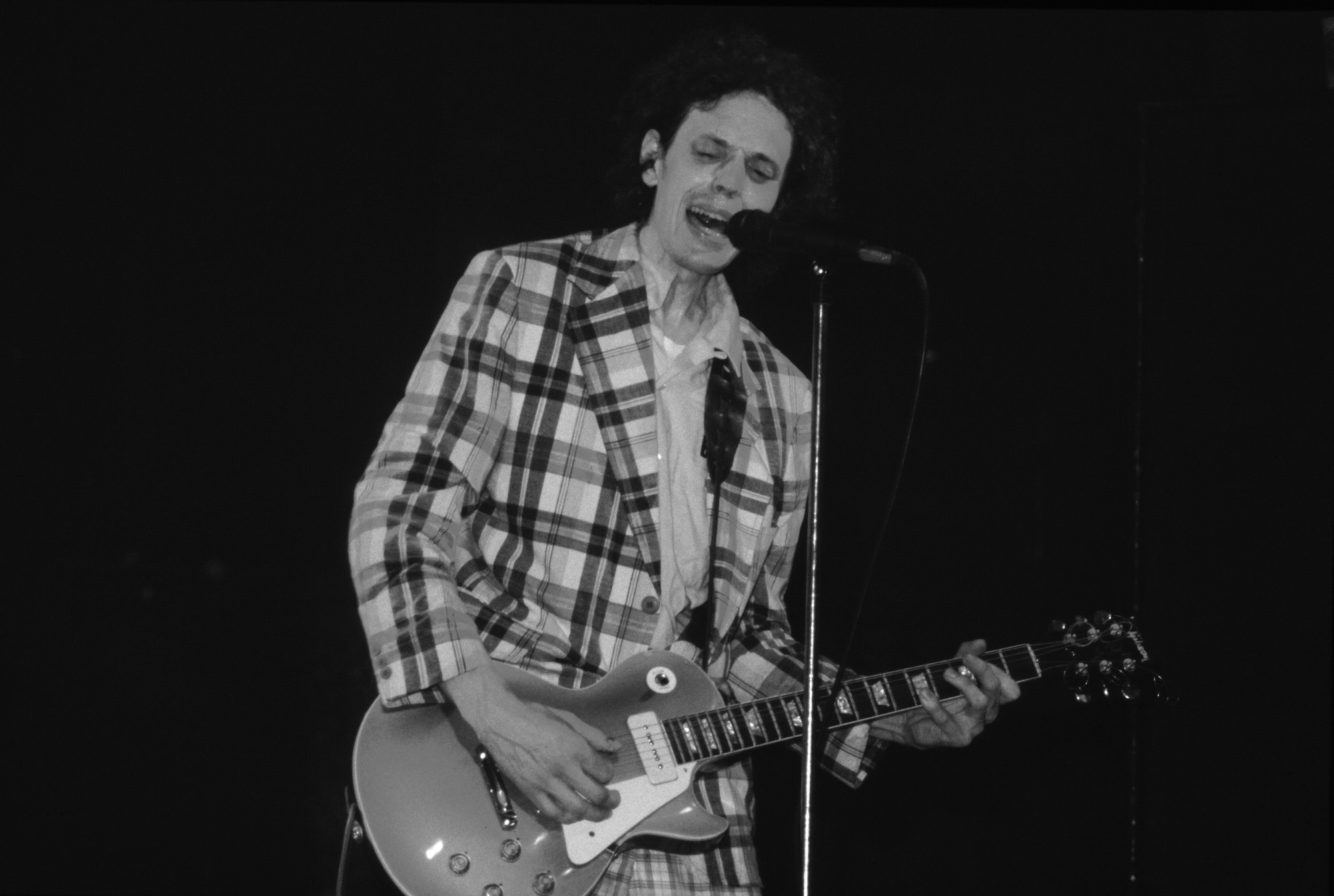
A well-rounded and well-liked guitarist, Slim Dunlap helped keep indie darlings the Replacements together in the late '80s after his predecessor in the lead guitar seat, Bob Stinson, was fired due to his issues with substance abuse.
Older and more seasoned than Stinson – or anyone else in the band for that matter – Dunlap was the perfect six-string foil for Replacements frontman and songwriter Paul Westerberg's increasingly mellow, but never lightweight, guitar-pop gems.
Though the Replacements ultimately dissolved in 1991, they were brought back together two decades later when Dunlap suffered a severe stroke.
Tackling two Dunlap originals – from the guitarist's low-key but acclaimed solo career – and a trio of covers, the band's Songs for Slim EP presaged the full-on Replacements reunion the following year.
Bruce Springsteen, for one, publicly championed Dunlap's solo albums, telling NPR, “I hope I get a chance to cut one of his songs.”
Encouraging listeners to listen to Dunlap's pair of solo albums, Springsteen cited them as “just beautiful, beautiful rock 'n' roll records. I found them to be deeply touching and emotional.”
Jon Camp
A formidable talent who made his mark in the UK prog scene, Jon Camp was best known as the bassist (and occasional guitarist) for the band Renaissance from the early '70s into the following decade.
Camp was also a talented vocalist, notably taking the male lead part on the band's side-length epic, Song Of Scheherazade.
Camp also played on Dangerous Music, the debut album from guitarist and singer/songwriter Robin George (who also passed away this year), and was a co-founder of the prog-pop band Cathedrale.
Jackson is an Associate Editor at GuitarWorld.com. He’s been writing and editing stories about new gear, technique and guitar-driven music both old and new since 2014, and has also written extensively on the same topics for Guitar Player. Elsewhere, his album reviews and essays have appeared in Louder and Unrecorded. Though open to music of all kinds, his greatest love has always been indie, and everything that falls under its massive umbrella. To that end, you can find him on Twitter crowing about whatever great new guitar band you need to drop everything to hear right now.
“Tom would say, ‘Play your guitar with a car key.’ It was very experimental”: Little Feat's Fred Tackett recalls Tom Waits' left-field approach to guitar playing – and his one-of-a-kind studio sessions
“Seeing friends and heroes of mine having their solos plagiarized broke my heart”: Giacomo Turra used their solos note-for-note for his own viral content. Now the guitarists who had their playing “stolen” are speaking out




























